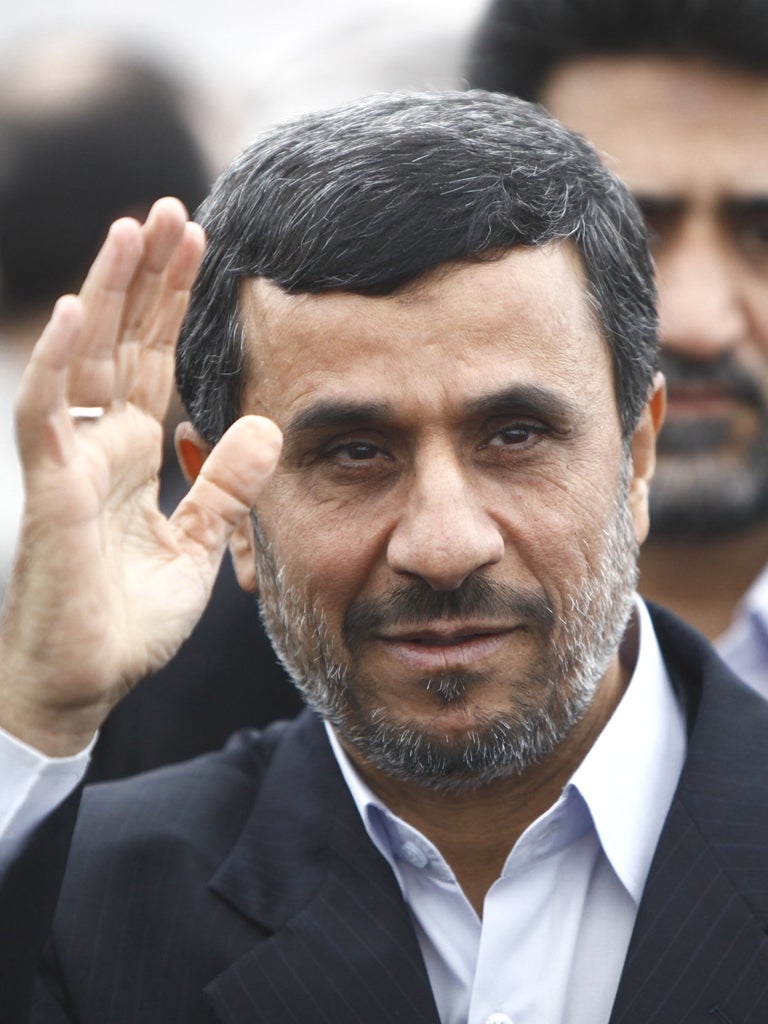Iran tests the West's patience with show of might in missile launch

Your support helps us to tell the story
From reproductive rights to climate change to Big Tech, The Independent is on the ground when the story is developing. Whether it's investigating the financials of Elon Musk's pro-Trump PAC or producing our latest documentary, 'The A Word', which shines a light on the American women fighting for reproductive rights, we know how important it is to parse out the facts from the messaging.
At such a critical moment in US history, we need reporters on the ground. Your donation allows us to keep sending journalists to speak to both sides of the story.
The Independent is trusted by Americans across the entire political spectrum. And unlike many other quality news outlets, we choose not to lock Americans out of our reporting and analysis with paywalls. We believe quality journalism should be available to everyone, paid for by those who can afford it.
Your support makes all the difference.Iran says it has successfully test-fired a medium-range missile close to the strategic Straits of Hormuz, a move that will test Western patience in the stand-off over its nuclear programme.
The surface-to-air missile was fired in international waters during a 10-day military exercise and is designed to elude radar detection and thwart jammers, Iran's state TV said on Sunday, adding that the weapon had been developed by Iranian scientists.
The announcement came a day after Barack Obama signed a law imposing tougher financial sanctions to penalise Iran for its nuclear-research programme. Tehran appeared to be sending the West a clear message that it could follow through on threats to close the Straits of Hormuz, a narrow shipping passage through which one-sixth of the world's oil supply passes, should the West impose sanctions on its energy industry.
Nevertheless, Iranian officials have stressed in recent days that Tehran has no plans to block the waterway right now, a move that analysts say would have a devastating impact on Iran's own economy and invite unwanted military retaliation.
The naval drills coincided with an announcement from Tehran that the country has made a significant advance in its nuclear programme, developing its first nuclear rod, a technological achievement necessary to make nuclear fuel that few believed Iran was capable of. It will play into Western fears that Iran is intent on developing an atomic bomb, a claim that Tehran has denied, insisting that its nuclear programme is peaceful and for civilian use.
Pressure on the West to impose tougher sanctions on Iran in a bid to halt its nuclear programme has increased following a report from the UN nuclear watchdog last November that presented fresh evidence Iran had pursued a nuclear-weapons programme until 2003. The agency was suspicious that some of the work was ongoing.
The EU has been mulling further sanctions, including measures against Iran's oil industry, which could be announced at meeting this month. Washington yesterday imposed new sanctions targeting Iran's central bank and financial sector.
Iran, the second-largest oil producer in Opec after Saudi Arabia, relies on oil sales for 80 per cent of its foreign currency earnings.
Last week, Iranian officials promised that the country would not permit "even one drop of oil" to pass through the Straits of Hormuz should the West impose oil sanctions. But Western diplomats viewed the threat as posturing because such a move would almost certainly invite a military response, which Iran is thought to want to avoid.
An Iranian lawmaker reiterated the threat yesterday. "If we feel that the enemies want to prevent our oil exports, definitely we will close the Strait of Hormuz," Ismail Kowsari was quoted by the semi-official Fars news agency as saying.
Join our commenting forum
Join thought-provoking conversations, follow other Independent readers and see their replies
Comments